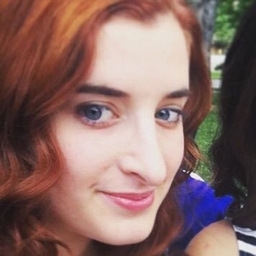
Rachel Feltman
Editor-at-Large at Popular Science
I host the podcasts The Weirdest Thing I Learned This Week and Science Quickly. This place is a tomb. I'm going to the nut shop where it's fun.
Articles
-
2 days ago |
scientificamerican.com | Meghan Bartels |Jeffery DelViscio |Fonda Mwangi |Alex Sugiura |Rachel Feltman
Rachel Feltman: For Scientific American’s Science Quickly, I’m Rachel Feltman. You’re listening to part two of our three-part series on the battle against bird flu. On Monday we followed flocks of wild birds to learn how new strains of avian influenza emerge and spread. Today we’re headed out to pasture to check out the next link in the chain from shorebird to human: poultry and dairy farms. Our host today is Meghan Bartels, a senior news reporter at Scientific American. Here’s Meghan now.
-
1 week ago |
scientificamerican.com | Rachel Feltman |Lydia Denworth |Fonda Mwangi |Alex Sugiura
This episode was made possible by the support of Yakult and produced independently by Scientific American's board of editors. Rachel Feltman: For Scientific American’s Science Quickly, I’m Rachel Feltman. Over the last couple of decades, few science topics have made a bigger mainstream splash than the microbiome. Our growing understanding of the microbes that live on us, in us and around us has scientists analyzing—and trying to tweak—colonies from our armpits to our genitals.
-
2 weeks ago |
scientificamerican.com | Rachel Feltman |Fonda Mwangi |Alex Sugiura
Rachel Feltman: For Scientific American’s Science Quickly, I’m Rachel Feltman. In the animal kingdom lifespans can stretch from mere hours to entire centuries, but that’s just the start. Some creatures deteriorate so slowly that we’ve never actually caught them dying of old age. Others don’t seem to age at all. And some can apparently reset their biological clocks and bounce back to infancy to start all over again.
-
2 weeks ago |
scientificamerican.com | Rachel Feltman |Naeem Amarsy |Fonda Mwangi
Rachel Feltman: Happy Monday, listeners! For Scientific American’s Science Quickly, I’m Rachel Feltman. Let’s kick off the week with a quick roundup of some science news you may have missed. You’ve probably heard that our galaxy, the Milky Way, is doomed to collide with the neighboring Andromeda galaxy sometime around 5 billion years from now. But according to new research, maybe we shouldn’t count on this multigalactic merger deal going through.
-
3 weeks ago |
scientificamerican.com | Rachel Feltman |Andrea Thompson |Fonda Mwangi
Rachel Feltman: For Scientific American’s Science Quickly, I’m Rachel Feltman. About 317 billion times per year members of the U.S. public check the weather on their phones, TVs or some other source. Those updates and alerts do everything from saving campers from rainy days to saving lives during big disasters. But what most of us don’t realize is that behind those forecasts, there’s a single, often invisible engine: the National Oceanic and Atmosphere Administration’s National Weather Service.
Try JournoFinder For Free
Search and contact over 1M+ journalist profiles, browse 100M+ articles, and unlock powerful PR tools.
Start Your 7-Day Free Trial →X (formerly Twitter)
- Followers
- 19K
- Tweets
- 6K
- DMs Open
- Yes